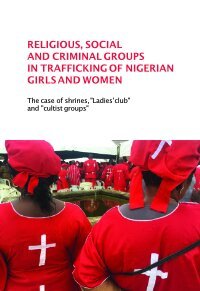By Élodie Apard, Éléonore Chiossone, Precious Diagboya, Aurélie Jeannerod, Bénédicte Lavaud-Legendre, Cynthia Olufade, Cécile Plessard, Sara Panata, Vanessa Simoni and Sam O. Smah
In an innovative manner, Packing research addresses human trafficking from Nigeria to Europe, beyond the perspective of the ‘victim/madam’ duo as classically analysed. It postulates the involvement of several social groups whose activity does not originate in the practice of human trafficking, neither is reduced to it. The offense of trafficking is therefore perceived as based on an organization that, beyond the criminal activity itself, has a highly structured and legitimized social, community and religious base. More precisely, this research describes the operation – activities and development – of each of religious groups (such as the neo-traditional Temples in Edo State, Nigeria), women’s groups (such as the Ladies’ clubs) and cultist groups (including Black Axe (Aye) and Supreme Eiye Confraternity) in Nigeria and France and then identifies their role and level of involvement in human trafficking. This research highlighted different elements that support the thesis of a misuse of beliefs, own practices and operating rules applied by these groups for criminal purposes.
Ibadan: IFRA-Nigeria - Institut Français de Recherche en Afrique - Nigeria, 2019. 183p.


